2026
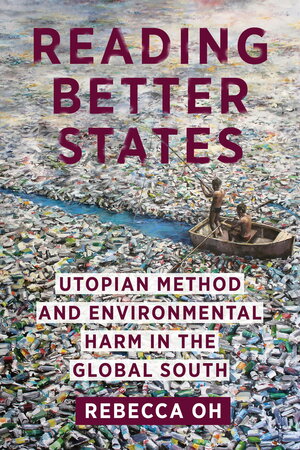
Reading Better States: Utopian Method and Environmental Harm in the Global South
Reading Better States traces the persistence of desires for the postcolonial state in an era of environmental harms and climate catastrophe. As pollution, toxicity, drought, and flood increasingly threaten peoples and environments across the global South, postcolonial writers and ordinary citizens alike have not ceded their futures to the damaged presents they inhabit. Rather, Reading Better States shows how they turn to the state as a resource, imagining postcolonial states as powerful actors and calling upon them to intervene in processes like global capitalism and environmental racism, or to provide environmental protections and basic material necessities. These utopic possibilities are concrete rather than grand, limited and situated rather than totalizing. But they are no less utopic for being quotidian.
2025
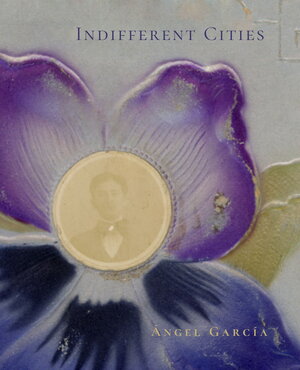
Indifferent Cities
Through one state to another, from one country to the next, Indifferent Cities traverses both distance and time to reconcile the most confounding reality of family: our people, sometimes, are the people we know least. Utilizing forms such as ekphrasis and epistolary, the collection sources photographs, postcards, and official documents as well as rumor, suspicion, and supposition to uncover the consequences, by choice or circumstance, of migration and immigration between Mexico and the United States across four generations. Surveying the terrain of what one knows and does not know, what one inherits and disinherits, the collection wrestles with every departure, each arrival, and the author’s inevitable return to determine where and to whom he belongs.

The Wake of HMS Challenger: How a Legendary Victorian Voyage Tells the Story of Our Oceans' Decline
In 1872, HMS Challenger embarked on the first round-the-world oceanographic expedition to shine a light for the first time on the mysteries of the deep sea. Challenger’s naturalists explored the oceans, encountering never-before-seen marvels of marine life. The expedition’s achievements are the stuff of legend: it identified major ocean currents and defining features of the seafloor, including the Mid-Atlantic Ridge and Mariana Trench; it measured worldwide sea temperatures and chemistry, creating baseline data for all ocean research since; and it collected nearly five thousand sea creatures and plants new to science.
The Challenger’s scientists had no way of knowing that the incredible undersea aquarium they were documenting was on the verge of catastrophic change. In The Wake of HMS Challenger, Gillen D’Arcy Wood looks afresh at this legendary scientific odyssey and shows why, 150 years later, its legacy looms larger than ever.
More info
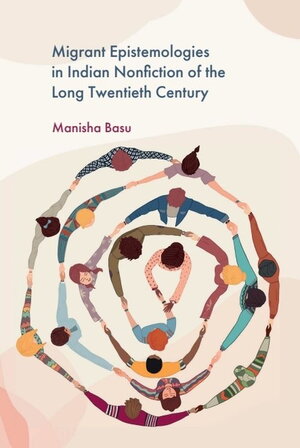
Migrant Epistemologies in Indian Nonfiction of the Long Twentieth Century
Attending to non-fiction texts from India and the Global South, Migrant Epistemologies identifies migratory contact zones as sites on which contrary epistemic stances may co-exist, despite their differences, in a symbiotic ecology. Given the increasing traffic between differentially empowered groups around the world, their distinct cognitive practices must often meet one another head-on. Manisha Basu argues that in the best of such circumstances, migrants and hosts open themselves to unlearning their own dominant worldviews and animating other ways of knowing. Unlike accounts of migration that accentuate the violences involved in the movements of peoples, this book foregrounds relatively peaceable, but still complex, migratory encounters that imagine an epistemologically diverse world resulting in social and environmental justice.
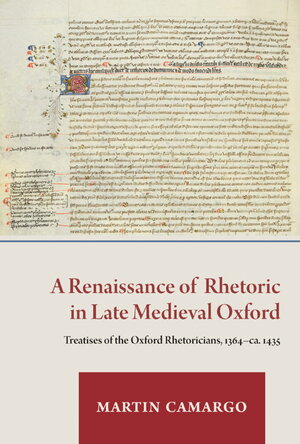
A Renaissance of Rhetoric in Late Medieval Oxford: Treatises of the Oxford Rhetoricians, 1364–ca. 1435
This book documents an unprecedented effort to produce new treatises on rhetoric at Oxford that began in the second half of the fourteenth century and continued through the first half of the fifteenth century.
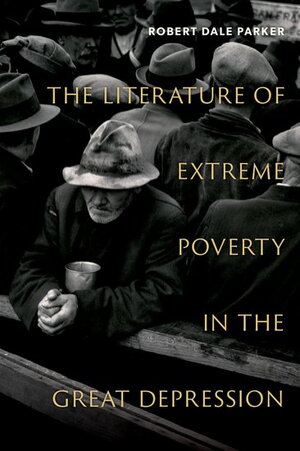
The Literature of Extreme Poverty in the Great Depression
The Literature of Extreme Poverty in the Great Depression uncovers a forgotten side of modernism: the literature of unemployment and poverty in the 1930s, particularly fiction and poetry about people starving on the street or struggling on welfare, people who often don't know where they'll find their next meal or whether they'll find someplace to sleep. They spend the night on park benches or in filthy flophouses, or they trade sex for food and shelter, or they starve. Time itself changes. For the starving poor standing for hours and hours in a breadline, the speed of modern culture slows down.

The New Internationals
Nuanced, powerful, and sharply realized, The New Internationals is a brilliant work of historical fiction that celebrates the awakening of the post-colonial movements of the 20th century and international youth population in Paris who rose up – and came together – in the beginnings of a vibrant political moment.

White Brown
One moment you’re too white to understand, the next you’re brown enough to be claimed. Kayla Pica Williams brings the bicultural experience alive. Pica is pulled between the white mainstream culture and brown Peruvian heritage, struggling to find identity in a world where the expectations of others often limits diversity of expression. She fearlessly engages issues of immigrant life while utilizing various experimental forms to discuss the intricacies of multicultural trauma, erosion of familial traditions, the complications of teaching across ethnic boundaries, and communicating through hostile language barriers.
2024
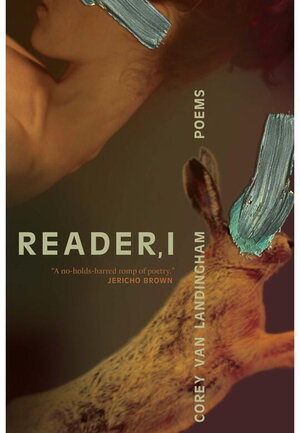
Reader, I
Reader, I draws its title from the conclusion to Charlotte Brontë’s Jane Eyre: “Reader, I married him.” Spanning the first years of a marriage, the speaker in Reader, I both courts and eschews nuptial myths, as its speaker—tender and callous, skeptical and hopeful, daughter and lover—finds a role for herself in marriage, in history, in something beyond the self. While these poems burn with a Plathian fire, they also address and invite in a reader who is, as in Jane Eyre, a confidant. Steeped in a world of husbands and fathers, patriarchal nations and power structures, Reader, I traverses bowling alleys and hospital rooms, ancient Troy and public swimming pools, to envision domestic life as a metaphor for civic life, and vice versa.

Yard Show
Black history, cultural expression, and the natural world fuse in Janice N. Harrington’s Yard Show to investigate how Black Americans have shaped a sense of belonging and place in the Midwestern United States.

Left Turns in Brown Study
In Left Turns in Brown Study Sandra Ruiz offers a poetic-theoretical inquiry into the interlacing forms of study and mourning. Drawing on Black and Brown activism and theory, Ruiz interweaves poetry, memoir, lyrical essay, and vignettes to examine study as an emancipatory practice. Proposing “brown study” as key for understanding how Brownness harbors loss and suffering along with the possibility for more abundant ways of living, Ruiz invites readers to turn left into the sounds, phrases, and principles of anticolonial ways of reading, writing, citing, and listening. In doing so, Ruiz engages with a panoply of hauntings, ghosts, and spectral presences, from deceased teachers, illiterate ancestors, and those lost to unnatural disasters to all those victims of institutional and colonial violence. Study is shared movement and Brownness lives in citation. Conceptual, poetic, and unconventional, this book is crucial for all those who theorize minoritarian literary aesthetics and think through utopia, queer possibility, and the entwinement of forms.

Case Study Research in the Digital Age
Case Study Research in the Digital Age can be used by a wide array of scholars, from novice to seasoned case study researchers, as well as a variety of disciplines, including but not limited to anthropology, communication, education, history, information science, psychology, and sociology.

Arab Brazil: Fictions of Ternary Orientalism
Arab-Brazilian relations have been largely invisible to area studies and Comparative Literature scholarship. Arab Brazil is the first book of its kind to highlight the representation of Arab and Muslim immigrants in Brazilian literature and popular culture since the early twentieth century, revealing anxieties and contradictions in the country's ideologies of national identity.
2023

Rendered Obsolete: Energy Culture and the Afterlife of US Whaling
Through the mid-nineteenth century, the US whaling industry helped drive industrialization and urbanization, providing whale oil to lubricate and illuminate the country. The Pennsylvania petroleum boom of the 1860s brought cheap and plentiful petroleum into the market, decimating whale oil's popularity. Here, from our modern age of fossil fuels, Jamie L. Jones uses literary and cultural history to show how the whaling industry held firm in US popular culture even as it slid into obsolescence. Jones shows just how instrumental whaling was to the very idea of "energy" in American culture and how it came to mean a fusion of labor, production, and the circulation of power. She argues that dying industries exert real force on environmental perceptions and cultural imaginations.
Analyzing a vast archive that includes novels, periodicals, artifacts from whaling ships, tourist attractions, and even whale carcasses, Jones explores the histories of race, labor, and energy consumption in the nineteenth-century United States through the lens of the whaling industry's legacy. In terms of how they view power, Americans are, she argues, still living in the shadow of the whale.
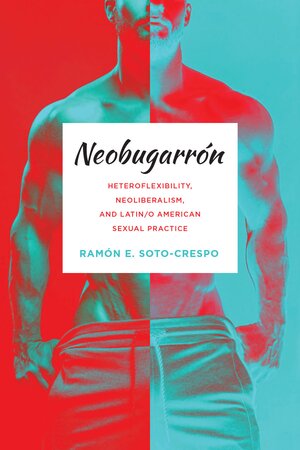
Neobugarrón: Heteroflexibility, Neoliberalism, and Latin/o American Sexual Practice
How should we understand the bugarrón, a man who has sex with other men while regarding himself as heterosexual? Reaching beyond queer and gay studies, Ramón E. Soto-Crespo’s research suggests that this paradoxical figure mutated into what he calls the “neobugarrón,” a neoliberal market-oriented actor who used the traditional sexual practice as an optimizing strategy for manipulating the forces of globalization during the 1990s.
In Neobugarrón: Heteroflexibility, Neoliberalism, and Latin/o American Sexual Practice, Soto-Crespo chronicles the cultural modifications of bugarrón, a distinct male-male sexual practice in Latin/o America and the Caribbean, during the twentieth and twenty-first centuries. Working with and against Foucault and Kinsey to examine diverse works from anthropology, literature, cinema, and social media, he investigates a wide array of bugarrón sources, ranging from previously underexamined multimedia to ethnographies, fiction, films, and beyond. These works constitute a neobugarrón archive and attest to a sexual practice currently metamorphosing on the cusp of extinction. Soto-Crespo’s analysis challenges conventional understandings of “heteroflexible” sex between men and reveals a hitherto unnoticed transformation in neoliberal ecologies of bugarrón sexual practice.
2022

Faith in Exposure: Privacy and Secularism in the Nineteenth-Century United States
Recent legal history in the United States reveals a hardening tendency to treat religious freedom and sexual and reproductive freedom as competing, even opposing, claims on public life. They are united, though, by the fact that both are rooted in our culture’s understanding of privacy. Faith in Exposure shows how, over the course of the nineteenth century, privacy came to encompass such contradictions—both underpinning the right to sexual and reproductive rights but also undermining them in the name of religious freedom.
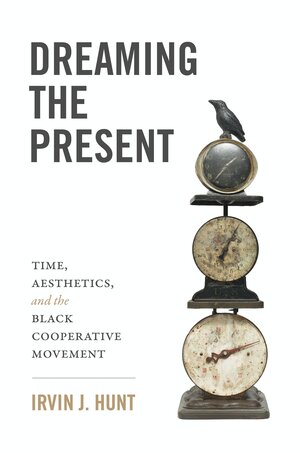
Dreaming the Present: Time, Aesthetics, and the Black Cooperative Movement
This is a story of art and movement building at the limits of imagination. In their darkest hours, W. E. B. Du Bois, Ella Baker, George Schuyler, and Fannie Lou Hamer gathered hundreds across the United States and beyond to build vast, but forgotten, networks of mutual aid: farms, shops, schools, banks, daycares, homes, health clinics, and burial grounds. They called these spaces “cooperatives,” local challenges to global capital, where people pooled all they had to meet their needs.
By reading their activism as an artistic practice, Irvin Hunt argues that their primary need was to free their movement from the logic of progress. From a remarkably diverse archive, Hunt extrapolates three new ways to describe the time of a movement: a continual beginning, a deliberate falling apart, and a simultaneity, a kind of all-at-once-ness. These temporalities reflect how a people maneuvered the law, reappropriated property, built autonomous communities, and fundamentally reimagined what a movement can be. Their movement was not the dream of a brighter day; it was the making of today out of the stuff of dreams. Hunt offers both an original account of Black mutual aid and, in a world of diminishing futures, a moving meditation on the possibilities of the present.
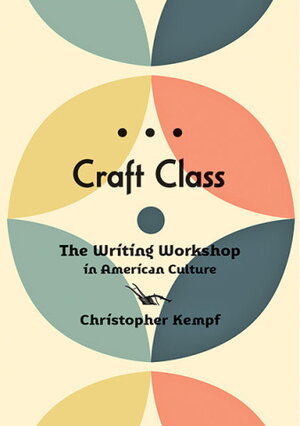
Craft Class: The Writing Workshop in American Culture
In Craft Class, Christopher Kempf argues that the primary institutional form of creative writing studies, the workshop, has remained invisible before our scholarly eyes. While Baker and others marshaled craft toward economic critique, craft pedagogies consolidated the authority of elite educational institutions as the MFA industry grew. Transcoding professional-managerial soft skills—linguistic facility, social and emotional discernment, symbolic fluency—in the language of manual labor, the workshop nostalgically invokes practices that the university itself has rendered obsolete. The workshop poem or short story thus shares discursive space with the craft IPA or hand-loomed Pottery Barn rug—a space in which one economic practice rewrites itself in the language of another, just as right-wing corporatism continuously rewrites itself in the language of populism.Delineating an arc that extends from Boston's Society of Arts and Crafts through 1930s proletarian workshops to the pedagogies of Black Mountain College and the postwar MFA, Craft Class reveals how present-day creative writing restructures transhistorical questions of labor, education, and aesthetic and economic production. With the rise of the workshop, Kempf shows, manual and mental labor have been welded together like steel plates. What fissures does that weld seal shut? And on whose behalf does the poet punch in?
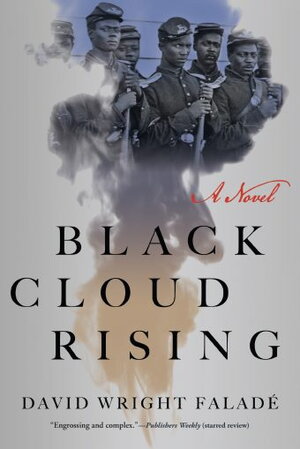
Black Cloud Rising
Already excerpted in the New Yorker, Black Cloud Rising is a compelling and important historical novel that takes us back to an extraordinary moment when enslaved men and women were shedding their bonds and embracing freedom.
2021
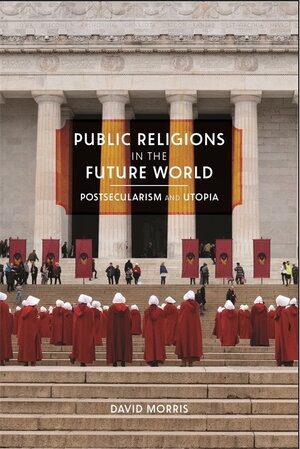
Public Religions in the Future World: Postsecularism and Utopia
Public Religions in the Future World is the first book to map the utopian terrain of the political-religious movements of the past four decades. Examining a politically diverse set of utopian fictions, this book cuts across the usual Right/Left political divisions to show a surprising convergence: each political-religious vision imagines a revived world of care and community over and against the economization and fragmentation of neoliberalism. Understanding these religions as utopian movements in reaction to neoliberalism, Public Religions invites us to rethink the bases of religious identification and practice. Offering new insights on texts from the Left Behind series to the novels of Octavia Butler, Public Religions shows that the utopian energy of the present opens new opportunities for political organizing and genuine, lasting community building.

Pekolah Stories
Pekolah Stories presents a standout portrait of small-town life in a straightforward, occasionally lyric style as it lays bare, in interconnected stories, Pekolah, Oklahoma, a world of trout rivers, church sanctuaries, and a pervading sense of decay. It is an unflinching portrayal of intergenerational trauma and the relentless cycle of poverty. But it is also about how many will endeavor to create a good life nevertheless.

What Though the Field Be Lost
Based on two years living and researching in Gettysburg, Pennsylvania, What Though the Field Be Lost uses the battlefield there as a way to engage ongoing issues involving race, regional identity, and the ethics of memory. With empathy and humility, Kempf reveals the overlapping planes of historical past and public present, integrating archival material—language from monuments, soldiers' letters, eyewitness accounts of the battle—with reflection on present-day social and political unrest. Here monument protests, police shootings, and heated battle reenactments expose the ambivalences and evasions involved in the consolidation of national (and nationalist) identity. In What Though the Field Be Lost, Kempf shows that, though the Civil War may be over, the field at Gettysburg and all that it stands for remain sharply contested.Shuttling between past and present, the personal and the public, What Though the Field Be Lost examines the many pasts that inhere, now and forever, in the places we occupy.
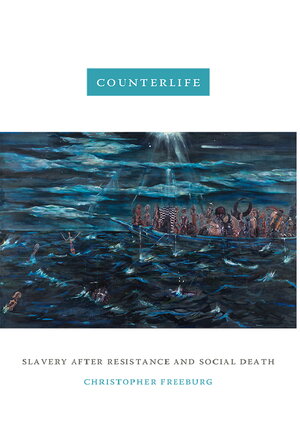
Counterlife: Slavery after Resistance and Social Death
In Counterlife, Christopher Freeburg poses a question to contemporary studies of slavery and its aftereffects: what if freedom, agency, and domination weren't the overarching terms used for thinking about Black life? In pursuit of this question, Freeburg submits that current scholarship is too preoccupied with demonstrating enslaved Africans' acts of political resistance, and instead he considers Black social life beyond such concepts. He examines a rich array of cultural texts that depict slavery—from works by Frederick Douglass, Radcliffe Bailey, and Edward Jones to spirituals, the television cartoon The Boondocks, and Quentin Tarantino's Django Unchained—to show how enslaved Africans created meaning through artistic creativity, religious practice, and historical awareness both separate from and alongside concerns about freedom. By arguing for the impossibility of tracing slave subjects solely through their pursuits of freedom, Freeburg reminds readers of the arresting power and beauty that the enigmas of Black social life contain.
2020

Hindutva as Political Monotheism
In Hindutva as Political Monotheism, Anustup Basu offers a genealogical study of Hindutva—Hindu right-wing nationalism—to illustrate the significance of Western anthropology and political theory to the idea of India as a Hindu nation. Connecting Nazi jurist Carl Schmitt's notion of political theology to traditional theorems of Hindu sovereignty and nationhood, Basu demonstrates how Western and Indian theorists subsumed a vast array of polytheistic, pantheistic, and henotheistic cults featuring millions of gods into a singular edifice of faith. Basu exposes the purported “Hindu Nation” as itself an orientalist vision by analyzing three crucial moments: European anthropologists’ and Indian intellectuals’ invention of a unified Hinduism during the long nineteenth century; Indian ideologues’ adoption of ethnoreligious nationalism in pursuit of a single Hindu way of life in the twentieth century; and the transformations of this project in the era of finance capital, Bollywood, and new media. Arguing that Hindutva aligns with Enlightenment notions of nationalism, Basu foregrounds its significance not just to Narendra Modi's right-wing, anti-Muslim government but also to mainstream Indian nationalism and its credo of secularism and tolerance.

How to Interpret Literature: Critical Theory for Literary and Cultural Studies. 4th edition.
Offering a refreshing combination of accessibility and intellectual rigor, How to Interpret Literature: Critical Theory for Literary and Cultural Studies, Fourth Edition, presents an up-to-date, concise, and wide-ranging historicist survey of contemporary thinking in critical theory. The only book of its kind that thoroughly merges literary studies with cultural studies, this text provides a critical look at the major movements in literary studies from the 1930s to the present. It is the only up-to-date survey of literary theory that devotes extensive treatment to queer studies, postcolonial and race studies, environmental criticism, and disability studies.
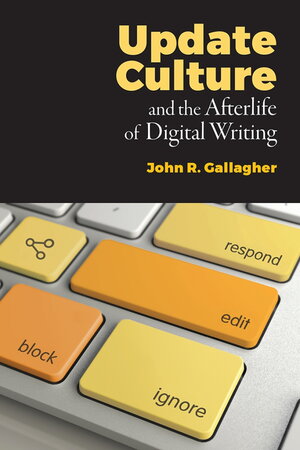
Update Culture and the Afterlife of Digital Writing
With the advent of easy-to-use websites, ordinary people have become internet writers, disseminating their texts to large audiences. Social media sites enable writers’ audiences to communicate back to them, instantly and often. Even professional writers work within interfaces that place comments adjacent to their text, privileging the audience’s voice. Thus, writers face the prospect of attending to their writing after they deliver their initial arguments. Update Culture and the Afterlife of Digital Writing describes the conditions that encourage “published” texts to be revisited. It demonstrates—through forty case studies of Amazon reviewers, redditors, and established journalists—how writers consider the timing, attention, and management of their writing under these ever-evolving conditions.

Literatura e (i)migração no Brasil / Literature and (Im)migration in Brazil
Waïl S. Hassan and Rogério Lima
The book brings together twenty-two chapters that examine aspects of migration and immigration in Brazil: French travel accounts of Brazil, writings of Brazilians abroad, and the minority literatures of Brazilians of Arab, German, Italian, Japanese, and Jewish Eastern European descent.

Shakespeare and Senecan Tragedy
Shakespeare's tragic characters have often been seen as forerunners of modern personhood. It has been assumed that Shakespeare was able to invent such lifelike figures in part because of his freedom from the restrictions of classical form. Curtis Perry instead argues that characters such as Hamlet and King Lear have seemed modern to us in part because they are so robustly connected to the tradition of Senecan tragedy. Resituating Shakespearean tragedy in this way - as backward looking as well as forward looking - makes it possible to recover a crucial political dimension. Shakespeare saw Seneca as a representative voice from post-republican Rome: in plays such as Coriolanus and Othello he uses Senecan modes of characterization to explore questions of identity in relation to failures of republican community. This study has important implications for the way we understand character, community, and alterity in early modern drama.
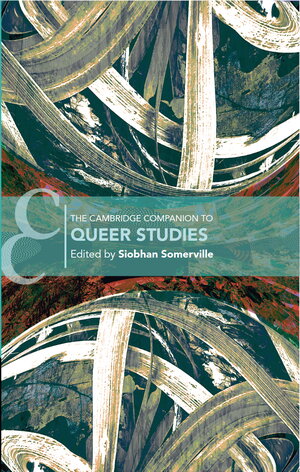
The Cambridge Companion to Queer Studies
Siobhan B. Somerville (editor)
This Companion provides a guide to queer inquiry in literary and cultural studies. The essays represent new and emerging areas, including transgender studies, indigenous studies, disability studies, queer of color critique, performance studies, and studies of digital culture. Rather than being organized around a set of literary texts defined by a particular theme, literary movement, or demographic, this volume foregrounds a queer critical approach that moves across a wide array of literary traditions, genres, historical periods, national contexts, and media. This book traces the intellectual and political emergence of queer studies, addresses relevant critical debates in the field, provides an overview of queer approaches to genres, and explains how queer approaches have transformed understandings of key concepts in multiple fields.
2019
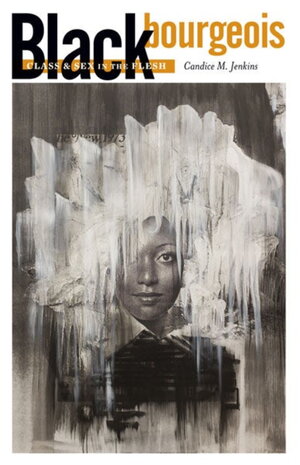
Black Bourgeois: Class and Sex in the Flesh
At a moment in U.S. history with repeated reminders of the vulnerability of African Americans to state and extralegal violence, Black Bourgeois considers the contradiction of privileged, presumably protected black bodies that remain racially vulnerable. Examining disruptions around race and class in literary texts, Candice M. Jenkins reminds us that the conflicted relation of the black subject to privilege is not, solely, a recent phenomenon. Focusing on works by creators such as Toni Morrison, Spike Lee, Danzy Senna, Percival Everett, Colson Whitehead, and Michael Thomas, Jenkins shows that the seemingly abrupt discursive shift from post–Civil Rights to Black Lives Matter, from an emphasis on privilege and progress to an emphasis on vulnerability and precariousness, suggests a pendulum swing between two interrelated positions still in tension. By analyzing how these narratives stage the fraught interaction between the black and the bourgeois, Jenkins offers renewed attention to class as a framework for the study of black life—a necessary shift in an age of rapidly increasing income inequality and societal stratification. Black Bourgeois thus challenges the assumed link between blackness and poverty that has become so ingrained in the United States, reminding us that privileged subjects, too, are “classed.”
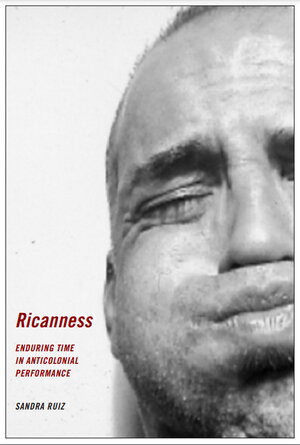
Ricanness: Enduring Time in Anticolonial Performance
In 1954, Dolores “Lolita” Lebrón and other members of the Puerto Rican Nationalist Party led a revolutionary action on the chambers of Congress, firing several shots at the ceiling and calling for the independence of the island. Ricanness: Enduring Time in Anticolonial Performance begins with Lebrón’s vanguard act, distilling the relationship between Puerto Rican subjectivity, gender, sexuality, and revolutionary performance under colonial time. Ruiz argues that Ricanness—a continual performance of bodily endurance against US colonialism through different measures of time—uncovers what’s at stake politically for the often unwanted, anticolonial, racialized and sexualized enduring body. Moving among theatre, experimental video, revolutionary protest, photography, poetry, and durational performance art, Ricanness stages scenes in which the philosophical, social, and psychic come together at the site of aesthetics, against the colonization of time. Analyzing the work of artists and revolutionaries like ADÁL, Lebrón, Papo Colo, Pedro Pietri, and Ryan Rivera, Ricanness imagines a Rican future through the time travel extended in their aesthetic interventions, illustrating how they have reformulated time itself through nonlinear aesthetic practices.